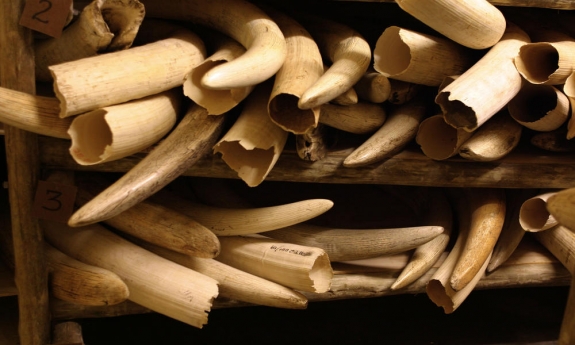In an effort to halt the global boom in wildlife trafficking, the Obama administration announced that it would ban the commercial trade of elephant ivory by prohibiting its import, export and resale within the U.S., with a few exceptions. A high demand for wildlife products has left certain species, such as the African elephant and the rhinoceros, on the brink of extinction.
In a letter accompanying the new National Strategy to Combat Wildlife Trafficking Obama said, "Record high demand for wildlife products, coupled with inadequate preventative measures and weak institutions, has resulted in an explosion of illicit trade in wildlife in recent years. The entire world has a stake in protecting the world's iconic animals, and the United States is strongly committed to meeting its obligation."
Current regulations only permit ivory to be imported if it is an antique and commercial objects made before 1976 and antiques can be exported. Domestic sales are more or less unregulated. The new system will not allow the import of antique African elephant ivory or the export of any ivory that is not an antique. To be considered an antique under the new system, an object must be more than 100 years old and meet the stringent requirements outlined in the Endangered Species Act. The administration will also ban the resale of elephant ivory across state lines, except for antiques. Sales within a state will only be allowed if the seller can prove that the object was lawfully imported before 1990 for African elephants and 1975 for Asian elephants.
The Obama administration will begin implementing the new regulations in the following weeks.



